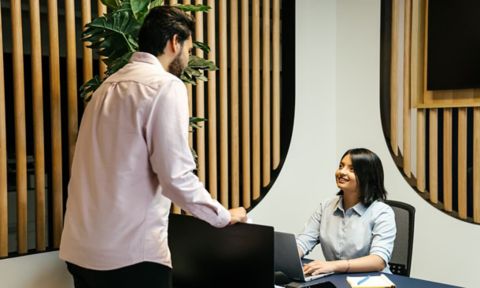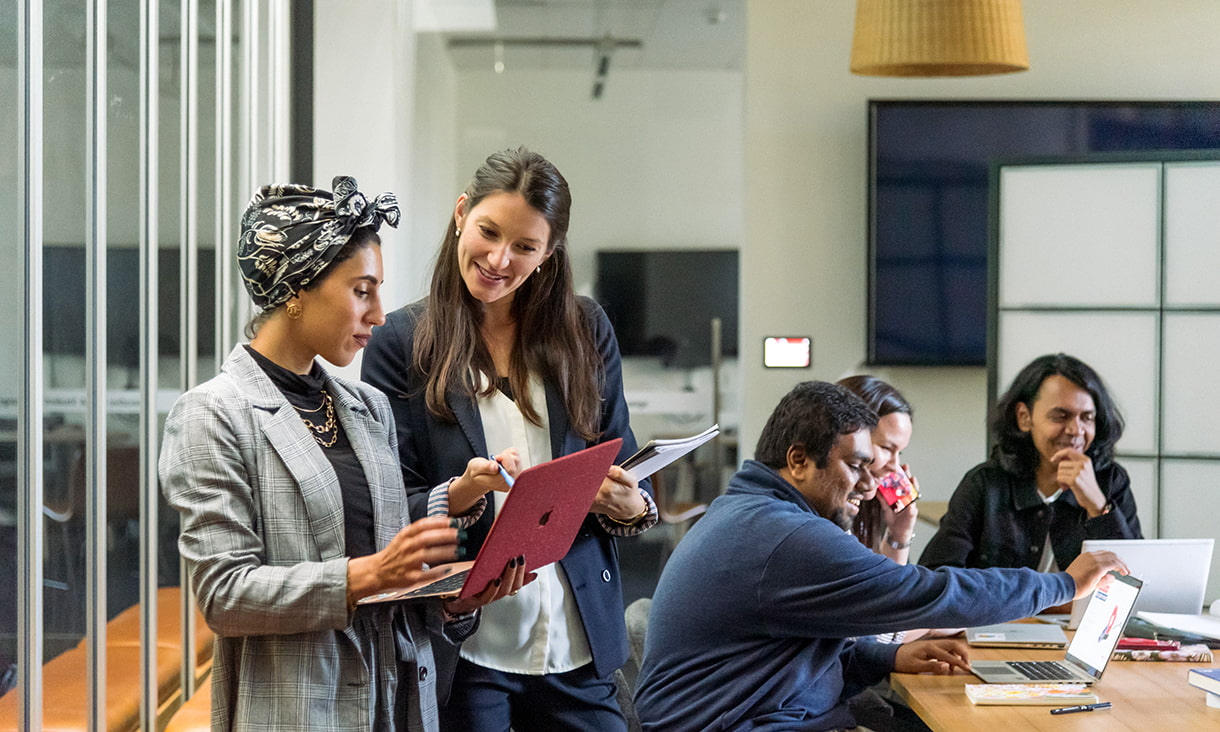#1: Join a networking platform and maintain an up-to-date profile
LinkedIn is where you’ll find professional groups that offer online and face-to-face networking opportunities, including the RMIT Alumni group. These opportunities could include anything from casual coffees with one or two people, to more formal and large conferences.
Once you have joined a platform like LinkedIn, the next step in online networking is to create a profile that accurately reflects your skills and experience. Your profile headline should instantly convey your industry or the field you want to move into, as well as your current role. Don’t understate or exaggerate because your profile will form the basis of your online interactions.
Some people see networking as fake and forced, but the secret to good networking is to be authentic – and it all starts with your profile. Those who are genuinely interested in helping others and sharing their own stories can create long-lasting professional connections.
#2: Send personalised connection requests
Most of us know how important networking is, but just the thought of ‘reaching out’ is enough to make some people withdraw into themselves with anxiety.
However, the beauty of online connections is you can be as socially active as you like, even if you’ve never physically met the people you’re connecting with.
Online, it’s best practice to request to connect to people by sending a personalised message. It should explain why you want to connect. If you want recommendations or some intel on a new role, be honest and ask. So many people are time-poor and appreciate people who are truthful and upfront.
It’s worth noting that digital connections don't replace in-person interactions. Online networks work best when they complement those built in real life.
RMIT Mentoring is a free program that fosters partnerships between current RMIT students, industry, and alumni. In many cases, the information flows both ways – lessons of experience from seasoned professionals to fresh insights from up-and-comers.
#3: Post regularly and engage with posts
Once you’ve created your LinkedIn account and sent connection requests, you can create posts. These might be links to news articles or blogs, career opportunities or some news about your own career.
Have you recently collaborated with colleagues to produce something you’re proud of? Post it, tag your colleagues and remember to include relevant links so readers can easily find more information.
Engaging with posts created by other groups or people is another way to showcase your industry knowledge and experience. Liking, commenting and sharing posts brings visibility to your profile, so try to join groups and follow topics you are genuinely interested in.
RMIT’s online alumni communities are welcoming and not only help you form connections, but also promote the sharing of latest industry news, career tips and recruitment information.
#4: Respect online etiquette
Professional online networking platforms are positive and supportive spaces that act as exchange hubs. Members encourage learning and career growth, celebrate each other’s workplace successes and foster innovative practices.
At various times throughout your professional careers, your connections will help you and you will do the same for them. That help could come in the shape of practical advice, approaches to tackling a difficult problem, job opportunities or mentoring.
When you’re networking online, remember to focus on being interested, rather than interesting. Read other people’s posts and make thoughtful comments, congratulate them when they reach a milestone, give credit where credit is due by tagging others in your posts, and take the time to respond to personal messages in a timely manner.
#5: Attend events
Joining professional groups is one way to stay across a range of events where you can meet and chat with people online and in person. These could include professional awards, online upskilling workshops and networking events.
During these events, stay engaged, take notes, ask questions and share your thoughts with others. It could be as simple as posing a question in the virtual chatroom, or reflecting on a speaker’s presentation with the person sitting next to you at a conference.
After attending a networking event, it’s commonplace to request connections on LinkedIn with those you have met. It’s a clever way of expanding your network online and offline – and sets you up for what’s next.
RMIT supports alum through various career resources such as the RMIT Skills and Jobs Centre.
For more information on networking opportunities and events, sign up to the RMIT Alumni newsletter.
Story: Kate Jones






